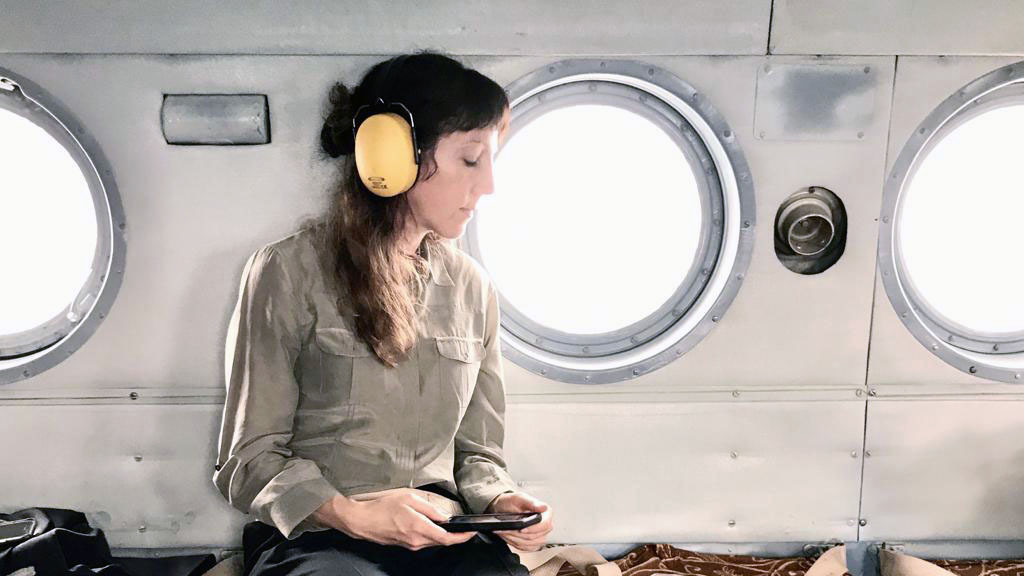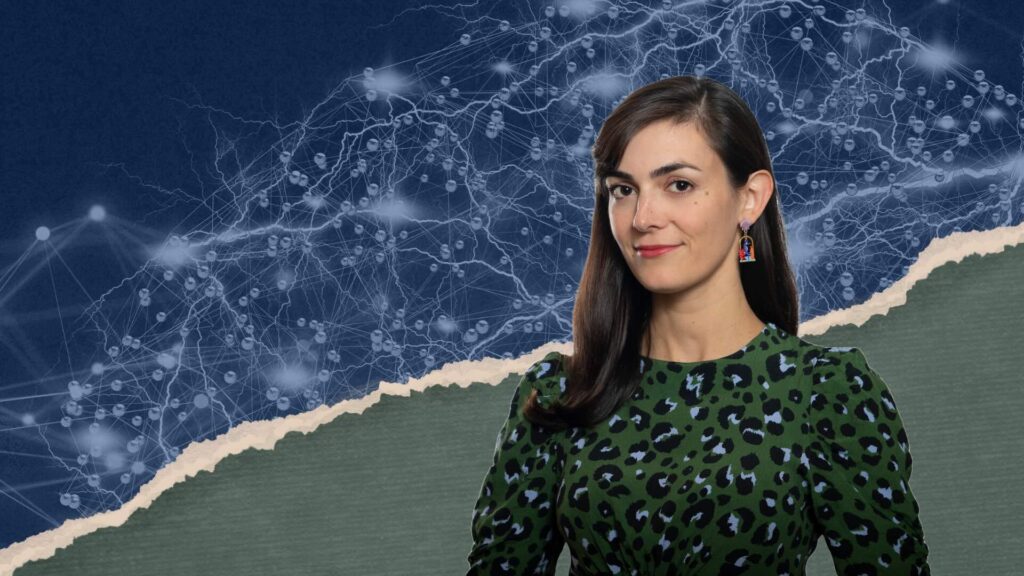From the moment Covid-19 began its worldwide march, Amy Maxmen knew she would cover it. Maxmen, a senior reporter at Nature, based in Oakland at the time, was no stranger to epidemics. She’d been covering infectious diseases since she took a job as a science writer for the Journal of Experimental Medicine 12 years earlier. In 2014 and 2015, she reported on the world’s largest Ebola outbreak from Sierra Leone. And in 2019, she traveled to the Democratic Republic of the Congo (DRC) to cover Ebola again. In both countries, she saw first-hand how a lack of resources, weak public health systems, and political instability could undermine efforts to contain an outbreak.
In February, as the new coronavirus outbreak grew into a global pandemic, Maxmen was primarily concerned about the toll it might take on low-income, under-resourced nations in the Global South — a concern that remains relevant today. She had confidence in the United States’ ability to respond to the public health crisis. However, a series of failures and missteps has left the U.S. with the highest Covid-19 death toll in the world and one of the highest per-capita death rates of all developed nations. With outbreaks now spanning the country from coast to coast, Maxmen is spending a lot of time thinking and writing about what went wrong at home — and what the pandemic’s course reveals about the U.S. In addition to covering Covid-19 containment efforts in the Global South, she’s reported on the U.S.’s failure to heed lessons from pandemic war-games and its dismal management of public health data, among other topics.
In a recent interview, Maxmen, now a Knight Science Journalism Program Project Fellow, spoke with me about the lessons she’s learned from her previous infectious disease reporting, the systemic failures that brought the U.S. to this moment, and how she stays positive while covering a beat dominated by negative news. (The following interview has been edited for length and clarity.)
Anna Blaustein: How did your experience in the DRC inform how you’re thinking about and covering coronavirus and the U.S. response to it now?
Amy Maxmen: I went to the DRC with Tedros [Adhanom Ghebreyesus], the head of the World Health Organization and wrote about the Ebola outbreak. He spent a lot of that trip talking about how inequitable and fractured health systems were in a lot of places. He was saying, “this is just going to happen again, these things are going to keep happening.” It feels [like] there was so much foreshadowing in that trip. There was political instability that was really undermining the response. There was a lot of mistrust among people. A lot of things I saw there are kind of happening here, even though everything is wildly different here. I didn’t know that spending time with Tedros in the DRC would turn out to really inform my feelings and my thoughts right now, but it did.
AB: What went wrong with the U.S. response to the new coronavirus?
AM: The biggest problem was the Trump administration. The most important time period of any outbreak is when it’s small and easier to manage. The Trump administration really failed between January to April; that was the time when we had to act fast. There were many signs that they were trying to sideline the response. Scientists were saying we really need to test people. And we had a government that did not want to push on testing. There’s also the lack of a national plan. If we had a government that said, “Here are all the labs that can possibly do testing, let’s prioritize testing in nursing homes every two weeks,” or “let’s make sure that all health workers get tested when they need it,” we could do that, but we would need a plan.
Now that [the outbreak is] huge, we’re going to see a lot of problems that are going to be hard to fix. There are deeper problems here like under-resourced public health departments and a lack of data management in public health departments. There’s a lack of trust for health systems. There’s the fragmentation of our health systems, the fact that not everybody has healthcare and that hospitals have to compete with one another for resources.
There are huge disparities in health care as it is. We see that in maternal mortality and cardiovascular disease, and now it’s playing out with Covid. There’s a lack of a safety net, so people are afraid to stay home and quarantine, and that’s a huge problem for transmission. We have a mass incarceration problem, and we’re wanting to just shut the door on our prisons when those are the biggest outbreaks in the U.S.
There are all these other deeper problems. And that’s not Trump’s fault. Those deep problems? That’s not just him, that’s been there.
AB: How have your goals for your work evolved over the course of the pandemic?
AM: Until around June, I was motivated to write a ton. In March and April, I was working 12-hour days, every day, including weekends. I was upset, but also really motivated and thinking, “I want to change this, I want to make a difference. If only I tweet more, if only I write these stories.”
I feel like the murder of George Floyd was sort of a pivotal moment. I realized, “Oh, it’s not just that people don’t know about systemic problems in the U.S., it’s that they are very hard to change. Something here is bigger than the news cycle.”
I’m still writing things I think are important. But I stopped feeling like there was going to be some moment where all of a sudden Trump was going to appoint scientists to really lead the response and put money into public health. Which isn’t to say these issues shouldn’t be covered anymore, because they should be covered. One reason that failures in the coronavirus response should be covered is for the record. I want to make it so politicians can’t squirm and say the deaths and economic devastation couldn’t have been prevented. Hopefully it can be one thing that people can look at as a piece of evidence on the record that the U.S. is not a blameless victim of the virus.
AB: You were a regular contributor to a Nature podcast called “Coronapod.” Can you talk a little about that experience?
AM: I’d never spoke regularly on a podcast before this. I don’t have any training in it. The Nature podcast people, Benjamin [Thompson] and Noah [Baker], said, “Just talk about what you’re working on.” And it was so much fun. It was an amazing experience, and it’s really largely because of them. I just talked about my stories, and it was really a relief from writing, where I have to think about every word, and it goes through tons of edits. Often there are things [in my writing] that I or the editors cut. This was a way to add in those other little tidbits and get a little bit more personal through my voice.
AB: What’s on your mind now?
AM: I’m doing a lot of thinking about what Covid reveals about the U.S. and about public health. I was talking with somebody named Graham Mooney, a medical historian at Johns Hopkins, and he was saying historians study epidemics for a reason, and the reason is that they reveal a lot about society and culture and politics. I’m doing a lot of thinking about what exactly this is revealing right now.
AB: How do you stay positive while thinking and writing about such heavy material?
AM: Long walks. Long talks with friends on the phone. That kind of stuff is helpful. It’s nice to talk with researchers who somehow have remained motivated and upset and willing to talk on the weekends. And getting this fellowship was like a light at the end of the tunnel. I think this is wonderful because it gives me a chance to do the kind of deep thinking that I really want to do right now.





Leave a Reply